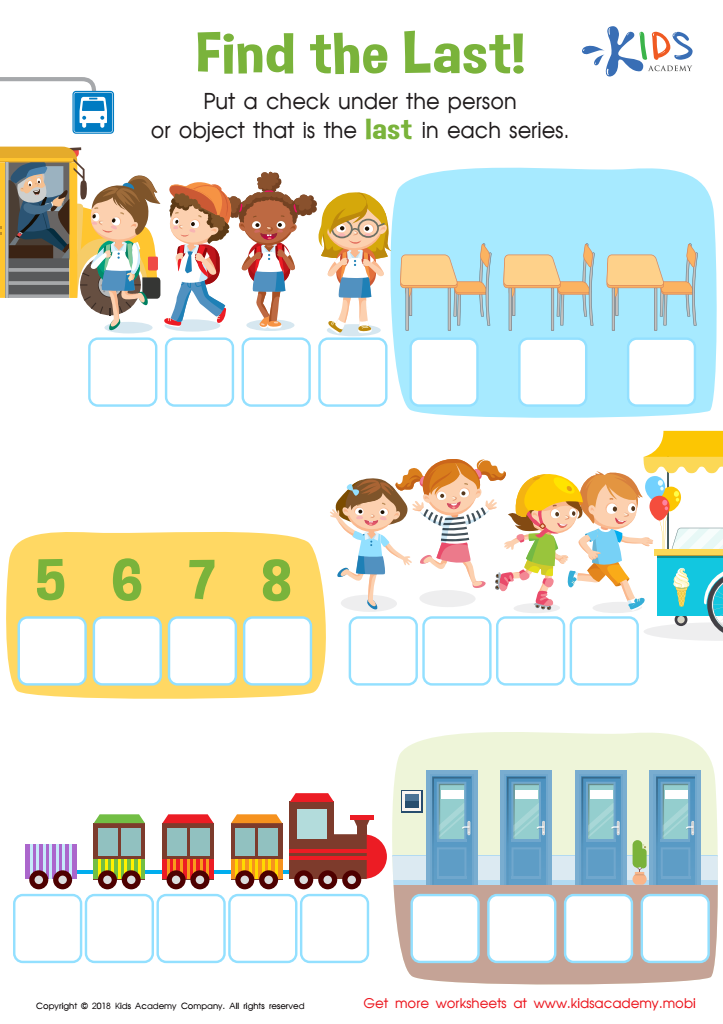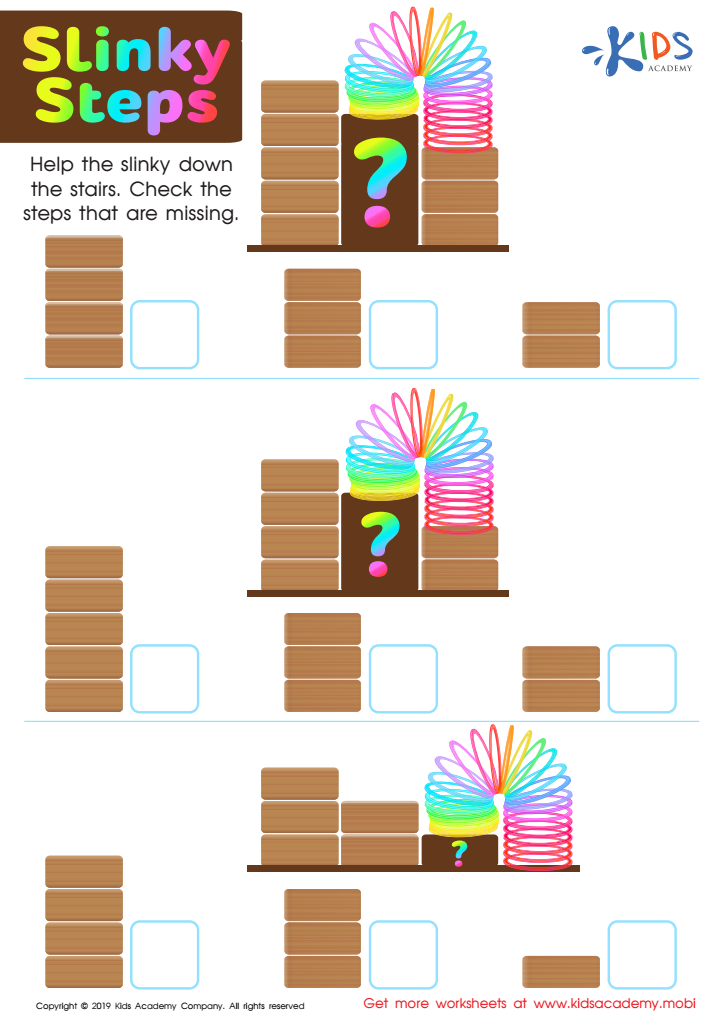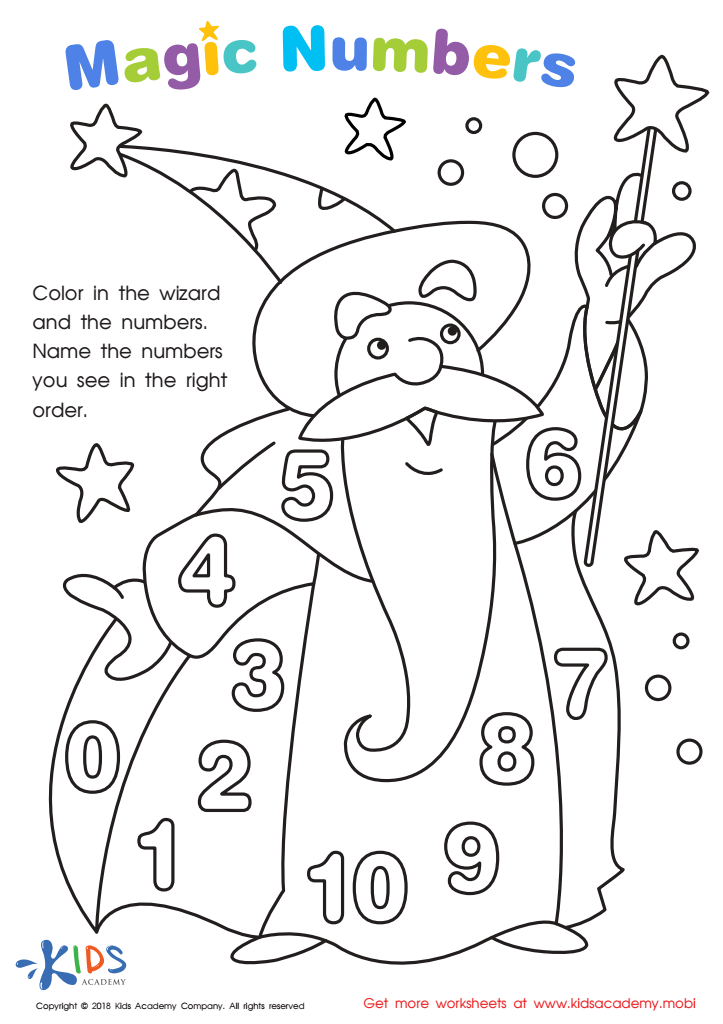Understanding patterns Numbers 0–10 Worksheets
3 filtered results
-
From - To
Help your early learner master the basics with our "Understanding Patterns Numbers 0–10 Worksheets." These worksheets foster essential math skills by inviting children to recognize, create, and extend patterns with numbers 0 to 10. As kids engage with fun and interactive exercises, they develop critical thinking and problem-solving abilities while solidifying their understanding of numerical order and sequences. Perfect for both classroom and at-home practice, these worksheets offer a valuable resource for building a strong math foundation in a playful, intuitive way. Equip your child for future success—download and start practicing today!


Find the Last! Worksheet


Slinky Steps Worksheet


Magic Numbers Worksheet
Understanding patterns in numbers 0–10 is crucial for young learners, as it forms the building blocks for future mathematical success and cognitive development. When children recognize and understand patterns, they develop essential skills like prediction, logical thinking, and problem-solving. Patterns help children grasp the concept of consistency and order, which are fundamental to mathematics.
For parents and teachers, emphasizing pattern recognition at an early age enhances numeracy skills. By identifying patterns in numbers, children learn to make connections, paving the way for comprehension of more complex mathematical concepts like addition, subtraction, and multiplication. For instance, when children see that adding one to a number consistently increases its value by one (1, 2, 3, ...), they are learning an essential numeral sequence pattern.
Moreover, understanding patterns promotes a positive attitude towards learning math. Engaging activities involving patterns (like using manipulatives, songs, or games) make learning fun, encourages curiosity, and builds confidence. It also supports non-mathematical learning by improving attention to detail, memory retention, and the ability to follow instructions.
To sum up, emphasizing number patterns from 0 to 10 provides a strong foundation that benefits children's academic journey and fosters essential life skills, making it an invaluable focus for both parents and educators.
 Assign to My Students
Assign to My Students





















